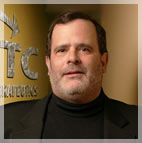The market for biotech IPOs has proven strong enough to welcome PTC Therapeutics, a player in the Duchenne muscular dystrophy field with a consistent record of late-stage failure. The biotech announced today that it has priced its IPO at $15, right at the middle of its range, while boosting the number of shares on offer to 8.4 million in order to reap a larger harvest of cash.
 |
| CEO Stuart Peltz |
PTC's claim to fame rests largely on the back of ataluren (PTC-124), which has been tested on both DMD and cystic fibrosis caused by "nonsense mutations." As PTC--a 2007 Fierce 15 company--notes in its S-1 filing with the SEC, ataluren failed both a Phase IIb study for DMD as well as a Phase III for cystic fibrosis. It even recently warranted a rebuke from regulators in Europe. But the biotech, which is led by Stuart Peltz, believes it's learned enough along the way to snag positive results in a final round of Phase III trials for both indications.
Back in 2011 Genzyme jettisoned its collaboration on the DMD indication, after a Phase IIb failure. But Peltz has consistently managed to raise funds for the company, adding a $60 million round just a few months ago from a mix of hedge funds, venture groups and Big Pharma investors. PTC has also garnered a considerable amount of grant money to back its research work.
Peltz has argued for years now that even though ataluren hasn't produced statistically significant results in later stage studies, the improvements in walking distance warranted an approval. He took that argument to the EMA last fall, asking for a conditional approval, but was promptly batted down--though there's no record of an announcement on their website.
"In March 2013, the EMA provided an initial response to our MAA submission for conditional approval of ataluren for the treatment of nmDMD," PTC reported in its S-1. "In this response, referred to as the day 120 list of questions, the EMA informed us of major objections that would preclude a recommendation for marketing authorization unless adequately addressed. These major objections relate to, among other things, the EMA's views regarding insufficient evidence of efficacy based on our single Phase IIb clinical trial, resulting in a negative risk-benefit balance for purposes of conditional approval, uncertainties about the effective dose and questions about whether our confirmatory Phase III clinical trial for this indication could be continued if the EMA grants conditional approval."
DMD has drawn a tremendous amount of interest from the investment community, which has largely been focused on Sarepta and a collaboration between GlaxoSmithKline ($GSK) and Prosensa. PTC, though, has been a dogged contender. Prosensa has also filed an IPO.
- here's the S-1
- read the AP story
Special Report: PTC Therapeutics - 2007 Fierce 15